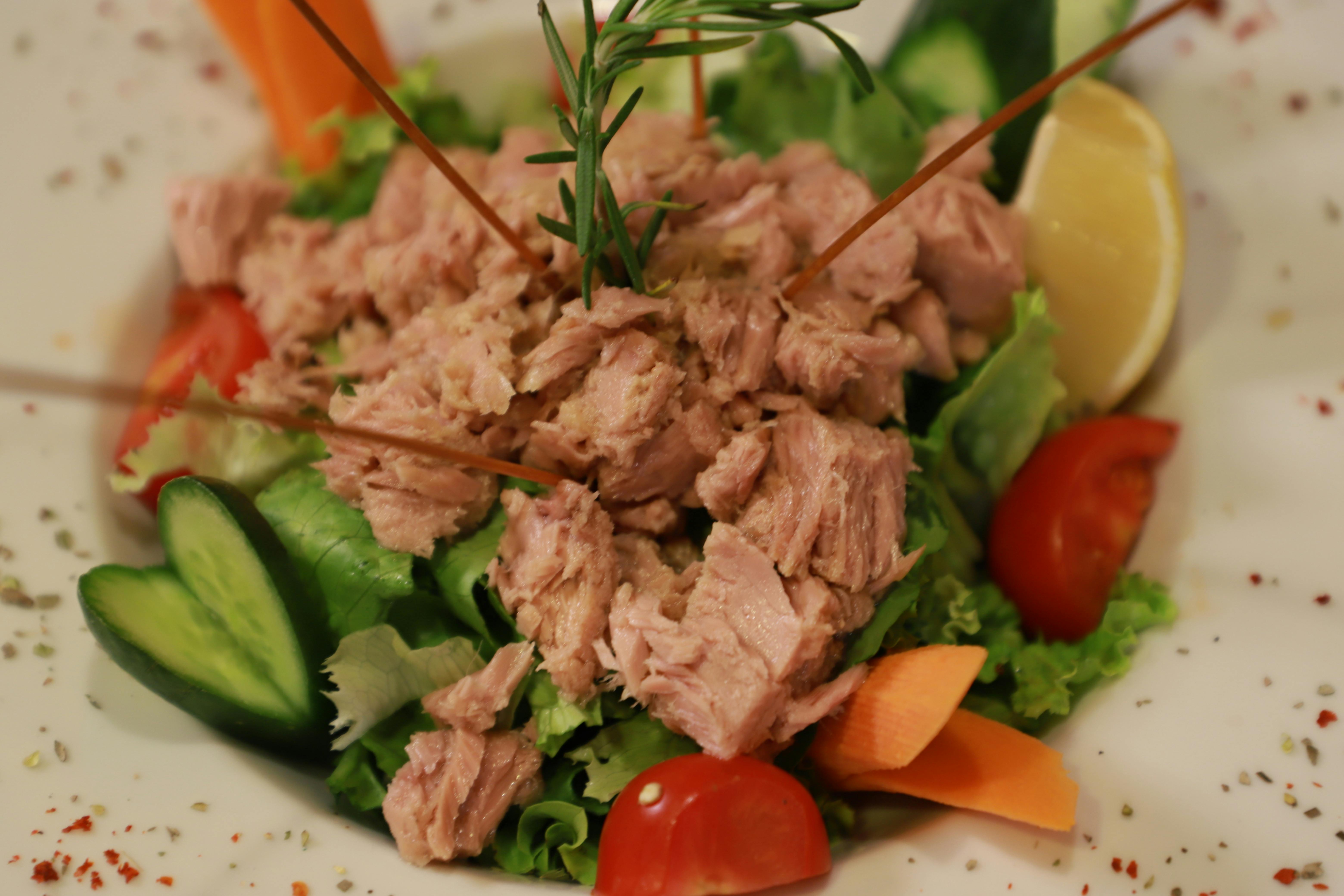Tuna Salad Calories: Low-Cal Protein Powerhouse
Tuna salad is a popular dish for those keeping an eye on their diet regimen. This versatile meal is not only delicious but also packed with nutrients. One cup of tuna salad typically contains around 380 calories, making it a moderately calorie-dense choice that can be part of a balanced diet.

Tuna salad is a popular dish for those keeping an eye on their diet regimen. This versatile meal is not only delicious but also packed with nutrients. One cup of tuna salad typically contains around 380 calories, making it a moderately calorie-dense choice that can be part of a balanced diet.
When considering nutrition facts, tuna salad offers a good amount of protein, which is vital for muscle repair and growth. In addition, it includes healthy fats from the fish itself. Depending on the ingredients used, such as mayonnaise, the calorie content can vary significantly. For instance, traditional tuna salad with mayonnaise can add unnecessary calories and fat, impacting your diet goals.
To maintain a healthier diet regimen, consider preparing tuna salad with alternative ingredients. Substituting mayo with low-fat yogurt or avocado can help reduce overall fat content while still providing the creamy texture and rich flavor. No matter how it's prepared, tuna salad remains a nutritious option that supports a balanced diet. For more detailed nutritional information, visit FatSecret or Nutritionix.
Nutritional Composition of Tuna Salad
Tuna salad provides a blend of macronutrients and essential vitamins and minerals. It supports various diet regimens by contributing to daily nutrient intake levels.
Calories and Macronutrients
Tuna salad typically contains about 383 calories per cup. This serving size includes approximately 19 grams of total fat, comprising 3.2 grams of saturated fat, 8.5 grams of polyunsaturated fat, and 5.9 grams of monounsaturated fat.
Protein: Tuna salad is a good protein source, with around 16 grams per serving.
Carbohydrates: It has a relatively low carbohydrate content, with net carbs around 9 grams and minimal sugars.
Other: It provides dietary fiber, contributing to a balanced diet without excessive caloric intake.
Vitamins and Minerals
Tuna salad is rich in several key vitamins and minerals essential for health.
Sodium: There is a significant amount of sodium, helping maintain fluid balance but mindful consumption is advised.
Potassium: It includes potassium, supporting muscle function and cardiovascular health.
Calcium and Iron: Essential minerals like calcium and iron are present, promoting bone health and oxygen transportation, respectively.
B Vitamins: It contains valuable B vitamins, including Vitamin B6 and Vitamin B12, which aid in energy metabolism and neurological functions.
Vitamin A and Vitamin C: These vitamins enhance immune functions and assist in maintaining skin health.
Other Minerals: Minerals like magnesium, phosphorus, zinc, copper, manganese, and selenium contribute to various physiological processes and antioxidant defenses.
Overall, tuna salad serves as a nutrient-dense option that accommodates various diet requirements.
Health Considerations and Dietary Relevance
Tuna salad can offer various health benefits but also requires careful consideration for those monitoring calorie intake or managing food allergies. Understanding its nutritional components, such as dietary fiber and cholesterol, can help in making informed dietary choices.
Weight Management
Tuna salad is often included in weight loss efforts due to its high protein content and moderate calorie count. A cup of tuna salad typically contains around 383 calories. The protein from tuna aids in satiety, reducing the likelihood of overeating. Yet, additions like mayonnaise increase calorie and fat content significantly.
For those keeping a calorie counter or food diary, substituting mayonnaise with Greek yogurt or avoiding high-calorie ingredients like cheese can lower caloric intake. Including vegetables such as celery or red peppers not only adds flavor but also boosts dietary fiber, which contributes to fullness without adding many calories.
Choosing lower-fat options and monitoring portion sizes are essential for maintaining a balanced diet while eating tuna salad. Ingredient choices impact overall nutritional values and can either support or hinder weight management goals.
Food Allergies and Restrictions
Those with food allergies or dietary restrictions must consider the ingredients in tuna salad carefully. Common allergens in traditional recipes include eggs and cheese. Mayonnaise often contains eggs, which can be problematic for individuals with egg allergies. In such cases, opting for an alternative like hummus or avocado can be beneficial.
For those with cholesterol concerns, the addition of eggs and cheese may increase cholesterol levels. Using low-cholesterol ingredients like beets or carrots can mitigate this issue. Moreover, some people are allergic to fish, making tuna salad entirely unsuitable for them.
Vegetarian or vegan preferences require replacing tuna with plant-based proteins such as chickpeas or tofu. Reading nutritional labels and understanding each ingredient's impact helps tailor the salad to fit specific health needs without compromising on taste.
Want more posts like this?Sign up for our FREE newsletter →